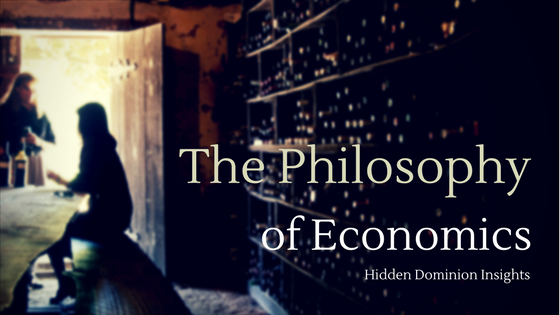Most Recent News


Popular News



What is the philosophy of economics? And why do we need to intermix philosophy and economics?
Economics: the study of scarce resources production, consumption, and distribution.
Philosophy: the study of the fundamental nature of knowledge, reality, and existence
It makes sense then to assume that the philosophy of economics is the study of the fundamental nature of economic knowledge.
Or the ontology of economics and how we can learn from the science.
In easier terms: How do we know economics is real, applicable, and how do we acquire knowledge from it?
In many ways, the biggest question is exactly what knowledge we want to acquire from the study of economics. Are we so focused on a certain scarce resource (money) that we ignore other scarce resources that are impossible to quantify, such as culture/socialization/etc?
Decision theory are things such as choice, risk analysis, the relationship between economic agents, and consumer/producer preference.
Game theory can be of exceptional help here. And that’s because it’s a shared tool between both economics and philosophy.
Game theory, simply put, is the science of logical decision making.
How does one arrive to a conclusive (logical) reasoning or decision?
So it works like this in economic terms:
Consumer A has a preference for product X over Y. But why does he/she have this preference? Because of Z.
“Because of Z” = is the logical decision-making aspect.
But it’s not actually an economic aspect. It’s a philosophical question.
In presents to us notable prominent philosophical questions such as “Can you truly decide anything objectively”?
It’s a truth claim.
Are we claiming that this theory relates to an objective reality? Or is it just an economist’s perception of it and the general overall trend of those being researched?
1. Can we lay an exact scientific claim to an economic theory?
Sure, for many things. A notable example being the Philips Curve.
Economists can predict with relative certainty. Or, they can find general trends and analyze the resulting data for insight.
2. What is ‘economic’ value?
Of course, in finance, it just means the dollar value surplus created by an action, such as an investment.
But how exactly are we supposed to truly, and masterfully, analyze this?
We can’t possibly take into account all the cost vs. benefits of an action.
It’s simply impossible.
I touched briefly on this in my Rebuttal to The New American Economy Open Letter.
In the retort, I stated:
So how do we define these costs?
Do we put a dollar figure on how much a human life costs in comparison to the supposed GDP growth?
Do we put a dollar figure on rape and label the travesty that the woman has to deal with the rest of her life as the interest?
And it’s my exact point.
We can analyze the obvious costs and benefits of certain monetary things as economists.
We can’t analyze the cost of a murder, or a rape. Putting a dollar figure on a human life is immoral and impossible. What if that individual became a billionaire and invested thousands into charity? What if he became a criminal and took from society?
We can’t analyze the fiscal impact from the spread of multiculturalism like we could with a change in GDP.
This idea that we can actually give a strict economic interpretation of things that we do not know, such as events that never had the chance to unfold, is hysterically inept.
So how exactly are we supposed to make conclusive statements?
The short answer: We, acting as just economists, can’t. Unless we use philosophy. We need both.
That’s where philosophy comes in. We can use it to more accurately analyze things such as the cost of a tragedy versus a supposed economic gain. See: broken window fallacy.
We need philosophy to consider the questions in relation to it:
Is it just? Is it moral?
And we have to use decision theory from an economist and philosophical perspective to do it effectively.
We need to look at these questions through a “bigger picture” lens. While certain monetary gains seem obvious, the hidden costs are quite ambivalent.
Take, for example, a discussion on environmental protections.
This has numerous obvious effects:
But it also has some other hidden effects. Effects not measurable by a cost vs. benefit analysis. Such as:
I could go on with these for a long time, but you get the picture. We need to see the full picture, not just one small aspect of it. Economics cannot be tunnel visioned on quantifiable estimates.
There is a lot at work here to consider when seeking an answer to even the simplest of questions. That is the beauty of economics.
And there is a lot more in action that we can’t possibly (numerically) consider.
This is why, within the breath of economists, there needs to be a philosopher. We can’t solely focus on numbers, GDP, money, and tangible real goods. We also need to consider the cultural, social, and intangible side of the equation.
Otherwise, it’s all about the money. With no consideration about the whole picture.
(Learn More About The Dominion Newsletter Here)